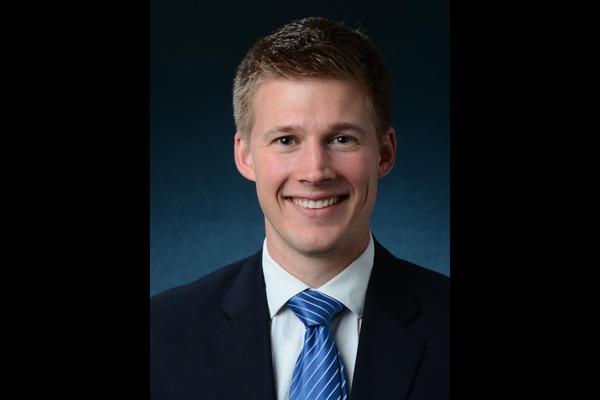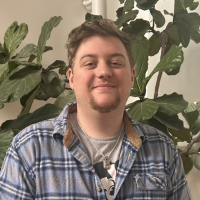STEAM Spotlight- Austin Faught

The STEAM Factory’s membership is ever-expanding with some of the most interesting individuals that I have ever met and had conversations with, so to highlight some people that make this place great, we have decided to start doing STEAM Spotlights. The goal is to put one out every week so that you all can get to know each other and what you work on so we can come together as a community. If you are interested in having a STEAM Spotlight for yourself, or if you have someone that you think would be a good candidate for a STEAM Spotlight, please feel free to reach out to me via email at schetter.12@buckeyemail.osu.edu.
Austin Faught-
I am a medical physicist and Associate Professor in the Department of Radiation Oncology at The James. I’m still relatively new to Ohio State in that I started my position about one year ago. This has been something of a coming home experience for me as I grew up in Northeast Ohio. I’m married with two young kids (4 years old and 20 months).
One of the things that I’ve missed in my highly specialized role has been interactions with others further outside of my discipline. When I first found out about STEAM, I was drawn to the opportunity to learn from others in the Ohio State community. I’m a strong believer in some of these random collisions leading to inspiration in tackling novel or challenging problems in ways we may not have previously considered. Even if I don’t personally have a serendipitous eureka moment like that, I find those interactions to be intellectually rewarding.
- What is one of the most interesting conversations that you have had recently?
One of the things I love about my job is that I get to work with some highly trained individuals that are experts in their respective field. I love listening to them talk about their areas of expertise and trying to absorb some of that knowledge. I recently helped with a sarcoma case that was in a challenging anatomical location. Talking with the attending physician about the goals for treatment and how those should be weighed against the risks for unwanted side effects provided both a challenge to us and an opportunity to learn more about how he approached the balancing act.
- What projects are you working on that encourage you to get out in the morning? What questions about your work are you curious about right now?
When I have breaks in my clinical responsibilities, I like to work on computer programming projects. Some of the software applications that we use have useful APIs that allow for writing custom code to automate or enhance clinical tasks. I’m interested in both the problem solving required to write the code as well as the effects of implementing it. There are a lot of benefits to quality of care from automating processes as computers are terrific at performing mundane tasks repeatedly with perfect accuracy. I’m also interested in working artificial intelligence into many of these tasks. AI in general fascinates me.
- What does community mean to you?
I’m struggling to think of a good, clean definition. I think it depends some on context. In academia we can think of community as a group engaging in the open sharing of ideas and knowledge. In a neighborhood it may be defined by geographic proximity and social connections. Or even a gym community could be built around shared goals in improving physical fitness. I guess in all of these it’s a group of people that are sharing something, goals, knowledge, space, etc.
- What books are on your shelf waiting to be read? Is there a reason that you have not read it yet?
I started reading The Martian a few months ago and got distracted by a busy schedule. I enjoyed another of Andy Weir’s books, so I’ve been looking forward to this one. Thanks for reminding me!
- What are people usually surprised to find out about you?
Throughout my training pathway, I’ve moved around quite a bit. It was a great experience from an educational perspective while also affording my life experiences of living in different cities and parts of the country. Since starting my undergraduate degree, I’ve lived in eight different cities in seven different states across the US.
- What is something that you do differently than most people?
My job as a medical physicist requires close attention to detail. I think that requirement in my day-to-day reinforces a part of my personality in a way that manifests as someone that is very meticulous. I have plenty of spreadsheets to track things like budgets or lawn/garden care tasks. I’m sure it comes off a bit obsessive at times.

